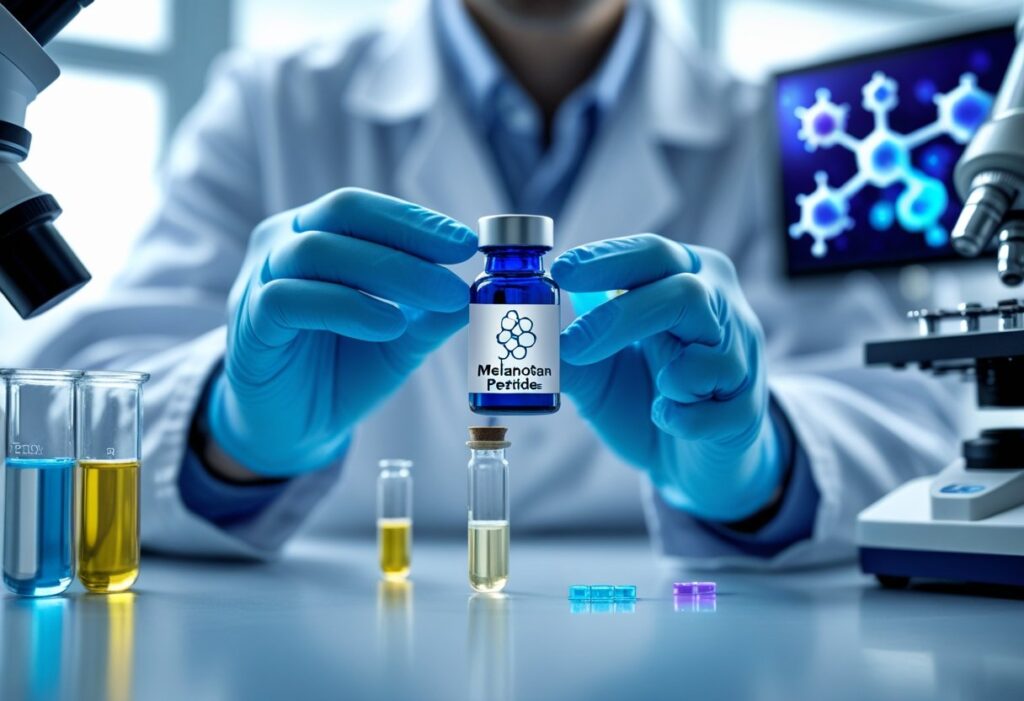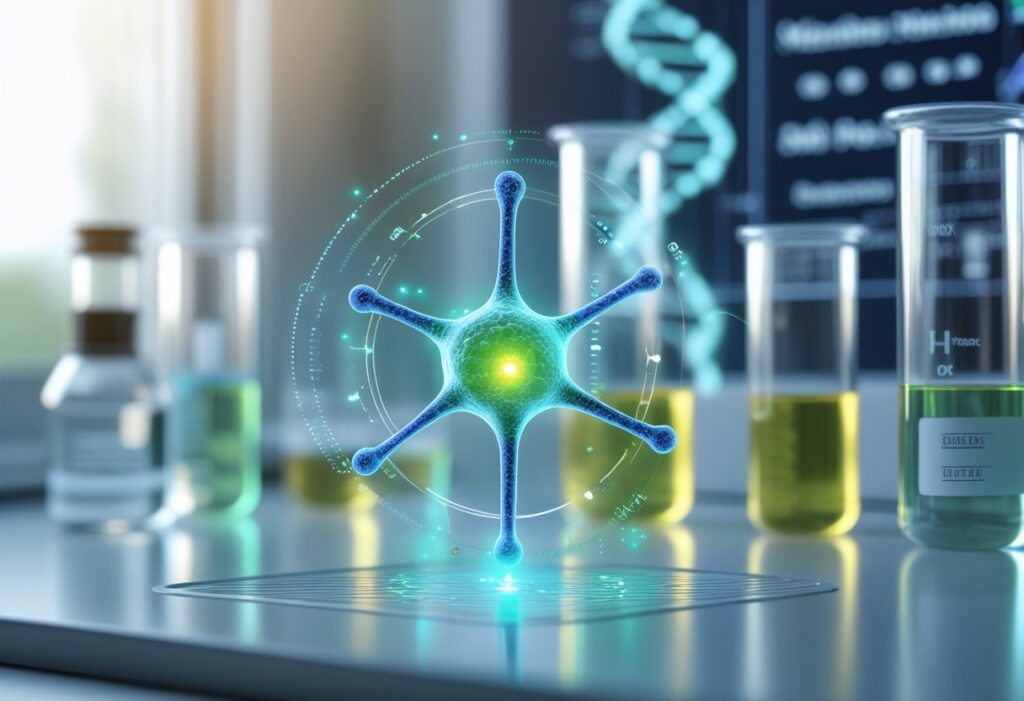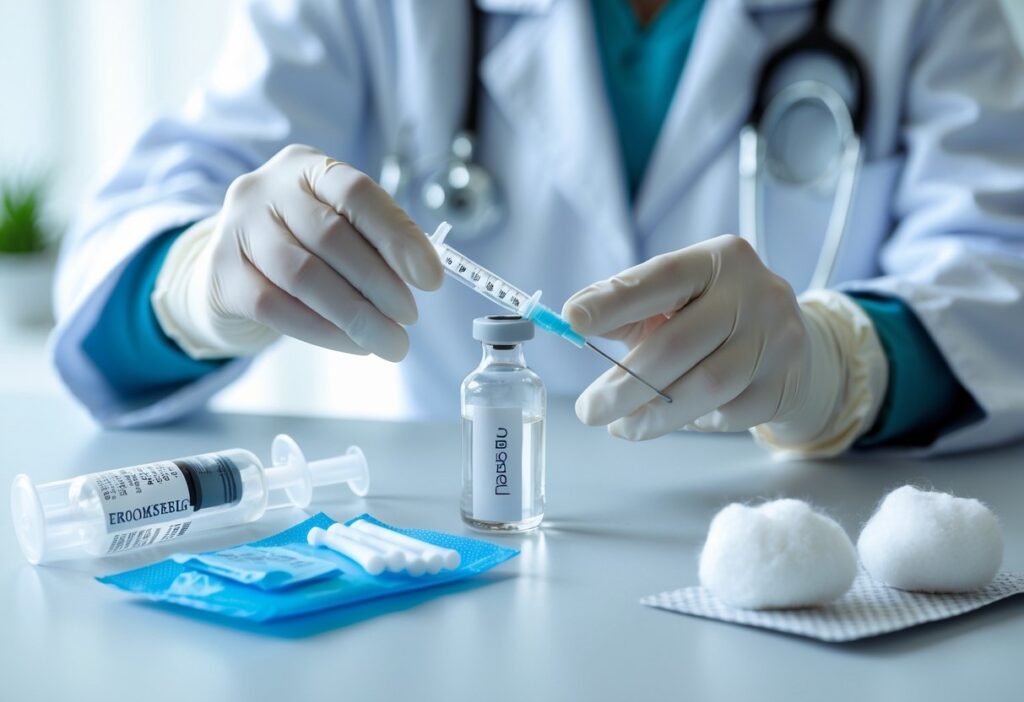Side Effects And Precautions Of Melanotan Peptides: What You Need To Know

Many people look to Melanotan peptides for a quick tan or other aesthetic benefits, but few stop to think about what these substances actually do inside the body. These synthetic hormones affect how our skin produces pigment, but they can also cause unwanted reactions that deserve careful attention. Understanding the side effects and precautions of […]
What To Expect During Your Melanotan Peptide Treatment And How It Works

Starting a Melanotan peptide treatment can raise a lot of questions about what actually happens during the process. You can expect a gradual change in skin tone as the peptide works with your body’s natural melanin production. Understanding how it works helps you feel more confident and prepared before starting. We’ll walk through what the […]
The Therapeutic Applications Of Melanotan Peptides In Modern Clinical Research

Many people know Melanotan peptides for their tanning effects, but their potential goes far beyond skin tone. These synthetic compounds mimic natural hormones that influence pigmentation, energy balance, and immune function. We explore how Melanotan peptides may support therapeutic goals beyond cosmetic use, including possible roles in metabolic health and skin protection. As we look […]
Comparing Melanotan Peptides With Traditional Tanning Methods For Safer, More Effective Results

Many of us want a natural-looking tan without spending hours in the sun or a tanning bed. New options like Melanotan peptides promise a faster, easier way to darken skin, but they raise questions about safety and results. We compare Melanotan peptides with traditional tanning methods to see which delivers better, safer, and more lasting […]
Melanotan Peptides: Science Behind Skin Darkening And Their Biological Mechanisms

Many people want a natural-looking tan without spending hours in the sun. Melanotan peptides have gained attention for their ability to darken skin by stimulating pigment production. These peptides work by triggering the body’s natural melanin response, leading to gradual skin darkening without direct UV exposure. We explore how these compounds interact with the body, […]
Exploring The Potential Of Melanotan Peptides For Leanness In Modern Body Composition Research

Many people search for ways to support a leaner body while maintaining energy and health. Melanotan peptides have gained attention for their potential to influence body composition beyond their known effects on skin pigmentation. We explore whether these peptides may play a role in promoting leanness through changes in appetite, metabolism, and fat distribution. As […]
The Role of Melanotan Peptides in Sun Damage Protection: Mechanisms and Efficacy

Many of us wonder if there are ways to protect our skin besides sunscreen and shade. Melanotan peptides are often talked about as a possible answer for reducing sun damage by increasing the amount of melanin in our skin. Melanotan peptides can make our skin darker, which may help our bodies defend against some effects […]
A Guide to Administering Melanotan Peptides Safely: Best Practices and Precautions

Melanotan peptides are becoming more popular with people looking to get a tan without sunbathing. With this interest comes a need for clear and accurate information. We need to know how to use Melanotan peptides safely to lower risks and avoid common mistakes. Lots of online sources don’t offer solid guidance or leave out important […]
How Melanotan Peptides Work to Enhance Skin Tone and Promote Tanning

Many of us want an even, sun-kissed skin tone without spending hours in the sun. Melanotan peptides have become a popular option for those looking for a new way to enhance their skin color. These peptides work by stimulating our bodies to produce more melanin, the pigment responsible for our skin tone. By mimicking the […]
Understanding the Benefits of Melanotan Peptides in Atlanta for Enhanced Skin Tanning

Living in Atlanta, many of us want to enjoy a healthy-looking tan without spending too much time in the sun. Melanotan peptides offer a way to get a sun-kissed look with less sun exposure, which may help lower the risks linked to UV rays. These peptides have gained attention in recent years for their possible […]